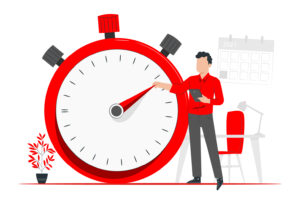Employee recognition strategies play a crucial role in boosting productivity by enhancing employee motivation. Research and published articles on this topic highlight how effective recognition methods positively impact job performance.
What Is Time Waste?
Time waste refers to the inefficient use of time when a person fails to achieve planned or expected outcomes within a specific period. It describes the time that is not used effectively to reach goals. Time waste can reduce productivity on both individual and organizational levels and often leads to the misuse of resources.
Common Causes of Time Waste
Lack of Planning: Not setting clear priorities and goals.
Lack of Focus: Frequently getting distracted and engaging in unnecessary activities.
Procrastination: Constantly delaying tasks that need to be done.
Excessive Information Consumption: Spending too much time on unnecessary information or entertainment.
Inefficient Meetings: Poorly organized or unnecessary meetings.
Technology Addiction: Spending excessive time on social media or digital devices.
Multitasking: Trying to handle multiple tasks simultaneously, leading to reduced focus on each.
Consequences of Time Waste
Reduced Productivity: Achieving goals becomes more difficult.
Increased Stress and Pressure: Running out of time creates stress.
Deviation from Career or Educational Goals: Inefficient use of resources makes it harder to achieve targets.
Loss of Workplace Performance: Motivation and efficiency among employees decrease.
Disruption of Personal Life Balance: Lack of time for family, social relationships, and personal growth.
Ways to Prevent Time Waste
Make Plans: Set daily, weekly, and monthly goals.
Prioritize: Start with the most important tasks.
Stay Focused: Minimize distractions.
Use Time Management Techniques: Apply methods like the Pomodoro Technique or the Eisenhower Matrix to manage time better.
Use Technology Wisely: Limit social media usage and adopt work-oriented digital tools.
Take Regular Breaks: Boost productivity by working in intervals with short breaks.
Avoid Procrastination: Start your tasks immediately to reduce wasted time.

Time Waste in Businesses: Impacts on Productivity and Profitability
Time waste in businesses can result in employees not fully utilizing their potential, inefficient use of resources, and interruptions in operational processes. This has a profound impact on short-term productivity and long-term profitability. Research identifies factors like poor planning, ineffective communication, unnecessary meetings, and the misuse of technology as key contributors to time waste. Additionally, time waste reduces competitive advantage, weakens a company’s market position, and adversely affects customer satisfaction.
Effective Strategies to Prevent Employee Time Waste
Various strategies can be implemented to prevent employee time waste and enhance productivity. These strategies boost efficiency at both individual and organizational levels, enabling more effective management of work processes
Effective Time Management Techniques
Time management helps employees prioritize and plan their tasks effectively. Tools like the Eisenhower Matrix, for example, allow tasks to be classified based on urgency and importance. This enables employees to focus on the most critical tasks, using their time more efficiently.
Reducing Distractions
Distractions such as social media, unnecessary meetings, or cluttered workspaces can lead to time waste. Minimizing these distractions enhances employee focus and boosts productivity. For instance, limiting social media usage or organizing the workspace are practical steps that can be taken to address this issue.
Time Management in Remote Work
Time management becomes even more critical in remote work settings. Creating daily and weekly plans, setting specific working hours, and taking regular breaks help remote workers use their time more effectively. Additionally, techniques like the Pomodoro Method, which involves working in specific intervals followed by short breaks, can significantly enhance productivity.
Prioritization and Planning of Tasks
Organizing tasks based on their importance and urgency ensures effective time utilization. This approach allows employees to prioritize the most critical tasks, preventing time waste. Moreover, creating daily and weekly plans contributes to smoother progress in work processes.
Effective Use of Technology
Time tracking software and project management tools help employees better organize their tasks and monitor their time. These tools make work processes more transparent and efficient. For example, time tracking software like TimeCamp enables remote teams to monitor their performance effectively.
Key Findings
Effective strategies to address employee time waste include techniques like proper time management, reducing distractions, and leveraging technology efficiently. Tools such as the Eisenhower Matrix help prioritize tasks, while time tracking software like TimeCamp ensures transparency and efficiency in workflow management. Additionally, planning tasks based on urgency and importance and adopting methods like the Pomodoro Technique in remote work settings significantly enhance productivity. By implementing these strategies, businesses can minimize time waste and maximize employee performance.
Optimize Your Team’s Time with Perwatch
Ready to take your team’s productivity to the next level? Perwatch provides powerful time tracking and employee management tools that help you identify time waste, streamline workflows, and enhance efficiency. With Perwatch, you can ensure transparency, boost motivation, and maximize your team’s potential.



